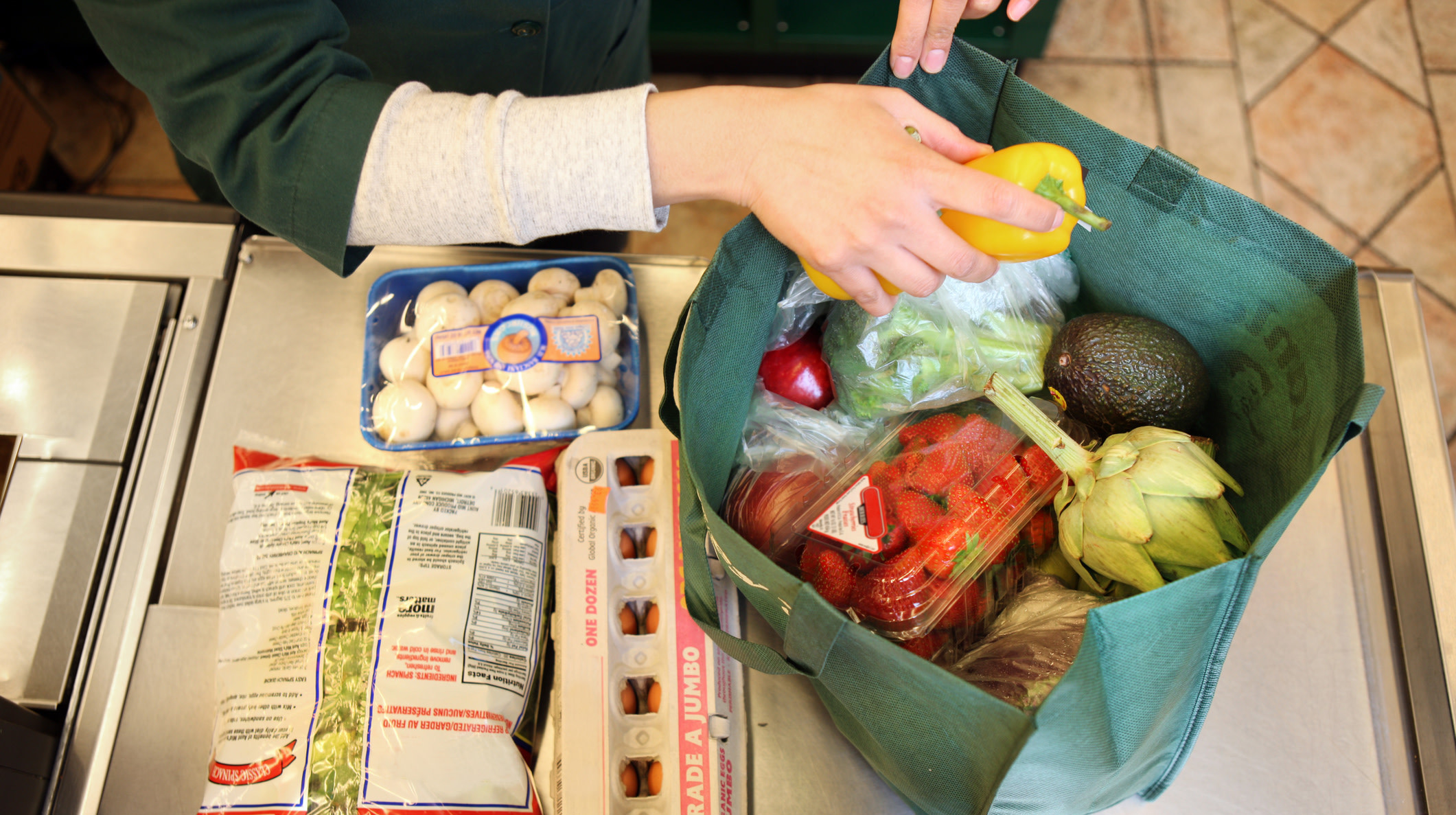Kroger Is Taking The Phrase "Keep The Change" Literally
Thanks to that pesky pandemic, consumers around the country are doing their best to avoid handling physical money, which can be riddled with germs from being passed around between so many people. Incredibly, this lack of circulation has caused an honest-to-goodness shortage of spare change at both retailers and banks. While this might not seem like the biggest deal, it turns out it's actually really hard to make a cash purchase without being owed at least a few filthy metal discs, and now some businesses are struggling to change with the times.
According to CNBC, large companies across the country are passing the buck (so to speak) to consumers. Some, like Walmart, 7-Eleven, Starbucks, Wawa, and CVS, are encouraging people to use credit or debit cards and to carry exact change with them. Kroger, on the other hand—one of the largest supermarket chains in the country—announced it's simply not going to be giving its customers physical change anymore. Instead, per the company's Twitter feed, your change "can be applied to your loyalty card and can be used on your next in-store, pick-up or delivery purchase. Alternately, we can round your transaction up to the nearest dollar and donate it to your local food bank." And banks are hoping you'll actually bring in your spare change and exchange it for dollar bills.
While none of these solutions are particularly good, Kroger's is absolutely the worst. Many, many people in America are unbanked and simply do not have credit cards and debit cards, so not being able to provide them with their change isn't a solution. Plus, as we all know from watching Office Space, small amounts of spare change add up quickly when it's being taken from millions of transactions. Kroger's decision to have money added to a loyalty card means that you are, for all intents and purposes, giving them an interest-free loan with no guarantee you'll ever get your money back. Plus a lot of charities are shady as hell, often keeping the majority of what they take in for "administrative fees," so without knowing exactly how your money will be used, Kroger's rounding up donation option might also be a bad move.
Thankfully, the Federal Reserve's newly created, totally trustworthy-sounding U.S. Coin Task Force is working on this issue as well. In the meantime, if you've got spare coins, roll 'em up in those paper condoms that banks love to hand out and trade them in for paper money. If you ask nicely, and request $1s, maybe they'll even put one of those fancy paper bands around your bills so that you can pretend you're being paid in fat stacks.
